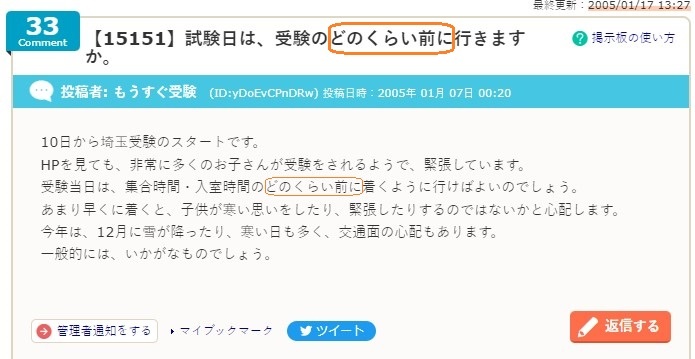まえに (mae ni) Meaning Japanese Grammar - Before
Anna Baffa Volpe
Get in touch with meThe term まえに (mae ni) means before, ahead, ago, in front of.
It is used to describe something that happened before another thing, expressing time and it is also used in a context of space referring to something in front of another thing.
In this post we are going to learn all the possible meanings of まえに through example sentences in real contexts.
How まえに is formed
This word can be preceded by either a noun or a verb.
前に is the transcription in kanji
Its antonym is represented by 後で ato de meaning afterwards, after.
How and when まえに is used
まえに is used both when talking about something temporal and spatial.
Mae ni in spatial expression patterns
In this case the form follows the structure:
図書館の前には大勢の学生が待っていた。
A large number of students were waiting in front of the library.
すばらしい景色がさっと目の前に現れた。
A wonderful view suddenly appeared in front of me.
目の前に in front of my eyes
学校の前にある軽食屋に行こう。
Let's go to the snack bar in front of the school.
Mae ni in temporal expression patterns
In this case we find temporal expressions of various kinds or nouns that imply temporal contexts.
ジョギングの前に、たくさん水を飲みましょうね。
Let's drink plenty of water before jogging!
1週間前に彼に会った。
I met him a week ago.
Here are some useful structures:
- 10日前に
tōka mae ni: 10 days ago - 2ヶ月前に
nikagetsu mae ni: 2 months ago - 5年前に
gonen mae ni: 5 years ago
As we see in this kind of expressions the particle の is obmitted between the number and the numeric suffix expressing time and 前に.
前 can be followed by the particle の and becomes an adjective:
前の日に
The day before, the previous day
2年前の出来事
What happened two years ago
旅行の前にホテルを予約した方がいいよね。
It's better to book a hotel before the trip.
Before doing something
まえに is widely used in combintion with the plain form in present tense and refers to an action occurring before another.
国へ帰る前に、お土産を買います。
I buy souvenirs before going back to my country.
毎朝、家を出る前に、瞑想します。
I meditate every morning before leaving home.
The verb is used in its affirmative form.
- 買い物に行く前に before going shopping
- 決める前に before deciding something
Use of 前 in a title of an article from the Internet

物件が学校の前。デメリットを教えて下さい。
Properties in front of the schools. What are the disadvantages?
Dore gurai mae ni
どのぐらい前に dono gurai mae ni, a useful interrogative form to ask:
- How long?
- How long ago?
- How far in advance?
- How early?

試験日は、受験のどのくらい前に行きますか。
How far in advance do you go on the day of the exam?
A similar situation and sentence:
試験会場にはどれくらい前に着けばいいの?
How early should I get to the test room?
Other sentences:
彼はどれくらい前に電話しましたか?
How long ago did he call?
予約はどれくらい前にすればいいですか?
How far in advance should I make the reservation?
Exemples of まえに
3年前に、日本に来ました。
I came to Japan three years ago.
A
ごめん、待った?
Sorry, did you wait for me?
B
ううん、5分前に来たばかりだよ。
No, I just got here five minutes ago.
The form たばかり refers to something that just happened.
寝るまえに、歯みがきを忘れないでね。
Don't forget to brush your teeth before going to sleep.
大学を卒業する前に、色々なところに旅行したい。
Before I graduate from University, I want to travel to various places.
私は彼の前に出たら言葉が出なくなった。
I was speechless when I stood in front of him.
Similar grammar points in Japanese 📚
から
から (kara) Meaning Japanese Grammar - Because
だけ
だけ (dake) Meaning Japanese Grammar - Only
たりする
たりする (tari suru) Meaning Japanese Grammar - Do Such Things as A, B Etc
ちがう
ちがう (chigau) Meaning Japanese Grammar - No
まだ
まだ (mada) Meaning Japanese Grammar - Still
ないでください
ないでください (naide kudasai) Meaning Japanese Grammar - Please Do Not Do